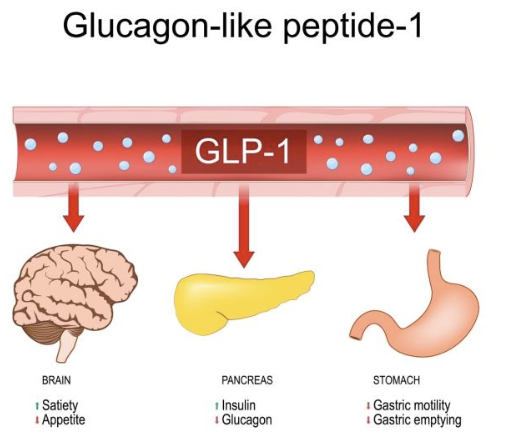The Peptide Insider: GLP-1 Agonists - Revolutionizing Health and Wellness

Hey Peptide Insiders,
Welcome back to another edition of The Peptide Insider! Today, we're diving into the transformative world of GLP-1 agonists and their profound impact on health, obesity, and overall well-being. These little molecules are reshaping our understanding of medicine and wellness in ways we never imagined.
A Quick Recap on GLP-1 Agonists
GLP-1 (Glucagon-like Peptide-1) agonists have been a game-changer in the management of type 2 diabetes and obesity for over 20 years. But recently, they’ve been making waves far beyond their initial scope. Semaglutide (Ozempic) and tirzepatide (Mounjaro) are household names now, not just for their metabolic benefits but for their unexpected impact on mental health and life satisfaction.
The Latest Buzz: Retatrutide and Fatty Liver Disease
Did you know that approximately one-third of all people suffer from non-alcoholic fatty liver disease (NAFLD)? It's a silent epidemic linked to obesity and poor metabolic health. Recently, an exciting study from Virginia Commonwealth University (VCU) highlighted the potential of a new triple agonist, retatrutide, in combating this condition. This peptide targets GLP-1, GIP, and glucagon receptors, showing remarkable results in reducing liver fat and even reversing fatty liver disease in some cases (Lexaria Bioscience Corp.) (Pfizer).
Beyond the Scale: Satiety and Life Satisfaction
One of the most fascinating aspects of GLP-1 agonists is how they influence the brain. These peptides signal satiety in the gut, but many users report a broader sense of contentment in life. Imagine feeling less driven by social media likes, less obsessed with money, and more balanced overall. This shift from constant craving to a state of satisfaction can transform not just your diet but your entire outlook on life. It’s like finding a Zen master in a molecule.
Safety Profile and Long-Term Use
Over the two decades of their use, GLP-1 agonists have shown a strong safety profile. Common side effects include nausea and mild gastrointestinal issues, but serious adverse effects are rare. The benefits far outweigh the risks for most users, making these peptides a reliable option for long-term management of metabolic health (Pfizer) (Lexaria Bioscience Corp.).
Peptides vs. Drugs: What’s the Difference?
Let’s clear up a common misconception. While GLP-1 agonists are peptides, they are classified as drugs by medical standards. Why? Because they undergo rigorous testing and approval processes to ensure their safety and efficacy. This classification doesn’t diminish their natural origins or their potential for therapeutic benefits. It simply means they meet the high standards required for medical use (Pfizer) (Lexaria Bioscience Corp.).
What’s New Today?
Today’s GLP-1 news is buzzing with excitement! Pfizer announced advancements in their GLP-1 receptor agonist program, highlighting a new oral candidate, danuglipron, which is moving into late-stage development. This could mean more convenient, non-injectable options for managing diabetes and obesity are on the horizon (Pfizer).
So, whether you’re battling the bulge, managing diabetes, or just curious about the latest in peptide science, GLP-1 agonists are a topic you can’t afford to ignore. Stay tuned as we continue to explore these groundbreaking developments.
Keep it peptide-powered!
Sean Davis
The Peptide Insider